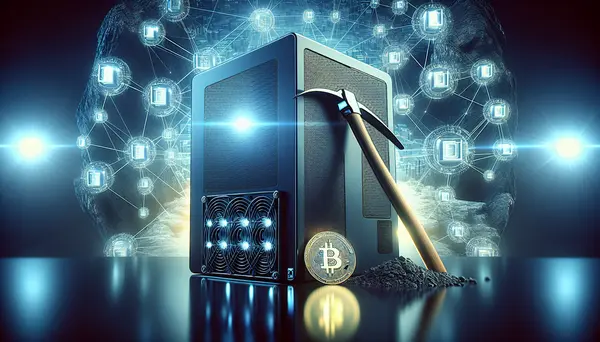Transaction Verification
Transaction Verification
When getting involved in the world of Bitcoin Mining, you will encounter a multitude of terms and phrases that may seem a bit confusing at first. One of these terms is Transaction Verification. To fully grasp the concept and power of cryptocurrencies, it's important to understand this process in detail.
What is Transaction Verification?
Transaction Verification refers to the process where a Bitcoin transaction is checked and confirmed by the Bitcoin network. When a transaction is made, it needs to be verified to ensure its legitimacy. This means that the contents of the transaction get checked and approved by the network before they become a part of the blockchain - a public ledger of all Bitcoin transactions.
Why is Transaction Verification Important?
Verifying transactions is a key element in maintaining the integrity and security of the Bitcoin network. Transaction Verification prevents fraud and double spending, ensuring that the Bitcoins being transferred are owned by the sender and that they have not been sent to someone else already. This process is what keeps cryptocurrencies like Bitcoin secure and reliable.
How Does Transaction Verification Work?
The process involves a combination of computational and cryptographic processes. Miners, or people who use their computers to facilitate Bitcoin transactions, are the ones verifying these transactions. Their computers perform complex calculations to validate transactions. Once the transaction is validated - meaning it follows all Bitcoin's protocol rules - it gets included in a 'block'. The block then gets added to the blockchain, finalizing the transaction.
Role of Bitcoin Miners in Transaction Verification
Bitcoin miners play an integral part in the Transaction Verification process. They use powerful hardware to solve complex mathematical puzzles that validate transactions. Once they verify a block of transactions, they receive a reward, typically in the form of Bitcoins. This not only incentivizes miners to participate but also serves to release new Bitcoins into circulation.
In conclusion, Transaction Verification is a vital part of the Bitcoin network's function and security. It maintains the integrity of data, prevents fraudulent activity, and ensures the consistent and reliable operation of the Bitcoin blockchain.
Blog Posts with the term: Transaction Verification

The article explores the growing trend of crypto mining in Kuwait, highlighting its appeal due to low electricity costs and import duties but also noting recent regulatory challenges. It discusses the economic benefits, legal landscape, and environmental considerations associated with...

XRP, created by Ripple Labs in 2012, is a pre-mined digital asset designed for fast and cost-effective cross-border payments using the Ripple Protocol Consensus Algorithm (RPCA) instead of traditional mining. Unlike Bitcoin's Proof of Work system, XRP relies on validators...

Crypto mining farming involves using powerful computers to solve complex mathematical problems, securing blockchain transactions and earning cryptocurrency rewards; setting up a successful farm requires specific equipment like GPUs or ASICs, efficient cooling systems, and reliable power supplies. To maximize...
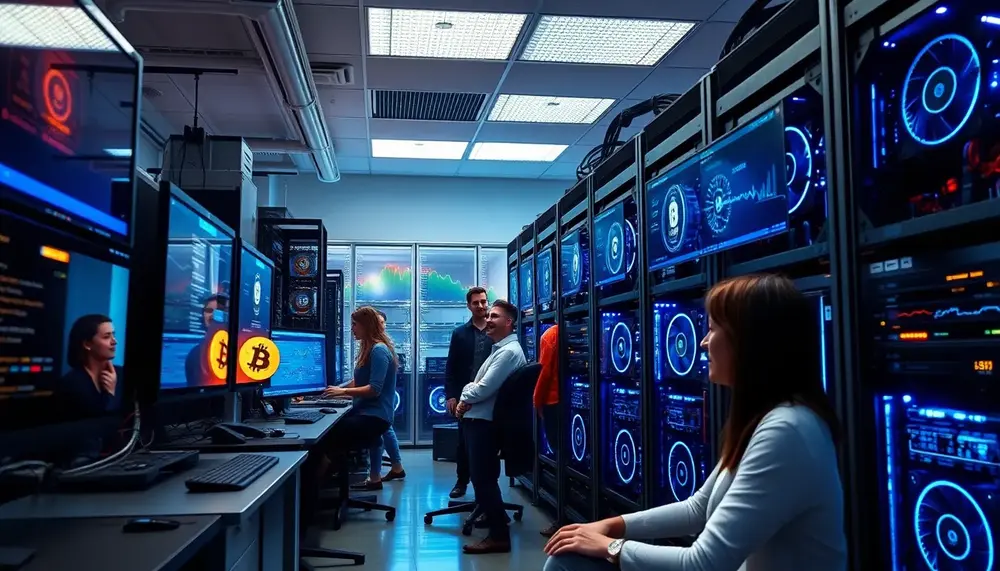
The article explores the introduction of crypto mining from an Urdu perspective, emphasizing its importance in making technology accessible to millions who speak the language by breaking down complex digital concepts into understandable terms. It delves into how cryptocurrency and...
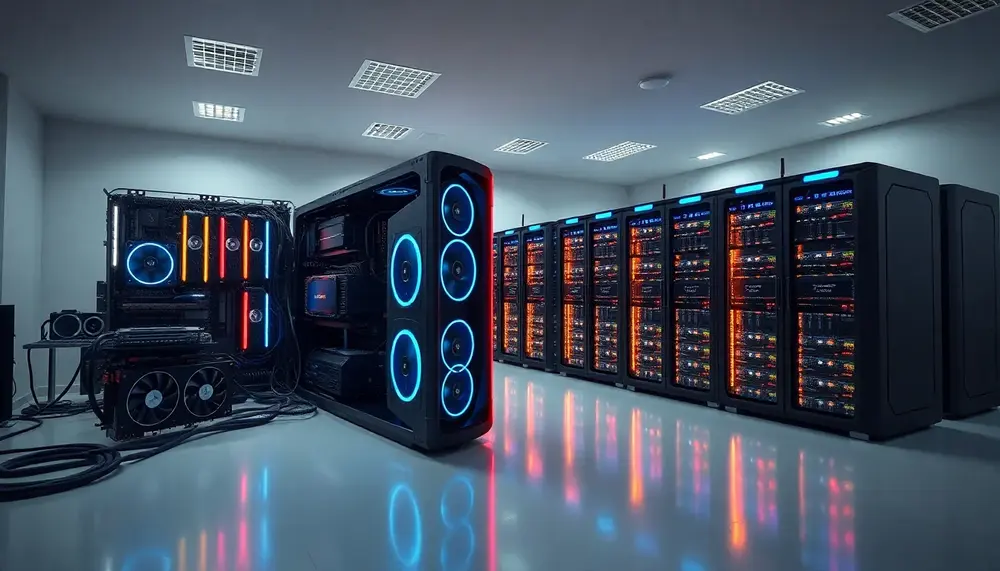
Crypto mining focuses on maintaining cryptocurrency networks by solving puzzles for rewards, while data mining extracts insights from vast datasets to drive informed decisions; both are essential but serve distinct purposes....

Beldex Coin mining, initially involving traditional cryptographic puzzle-solving for transaction verification and rewards, has transitioned to a master node system at block height 56420. This shift enhances network security, efficiency, and scalability by requiring collateral from participants who verify transactions...
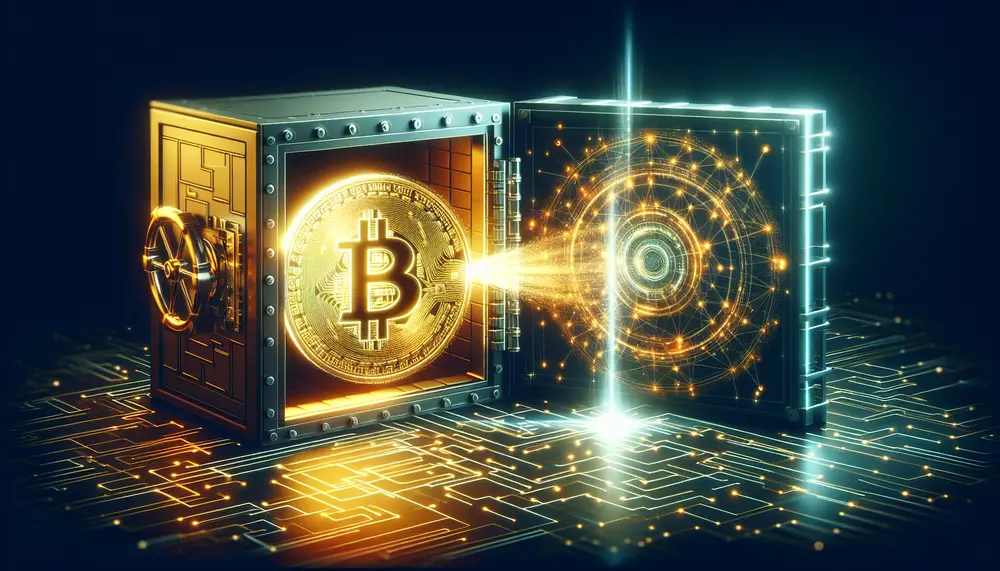
XRP, created by Ripple Labs in 2012, uses the Ripple Protocol Consensus Algorithm (RPCA) instead of traditional mining to validate transactions quickly and efficiently with low energy consumption. Unlike Bitcoin's proof-of-work system, XRP relies on trusted validator nodes that achieve...

Verifying the legitimacy of your Litecoin (LTC) miner is essential to avoid scams, ensure consistent payouts, gauge performance, and maintain regulatory compliance. Key steps include checking reviews and ratings for consistency and authenticity, verifying company details such as registration and...
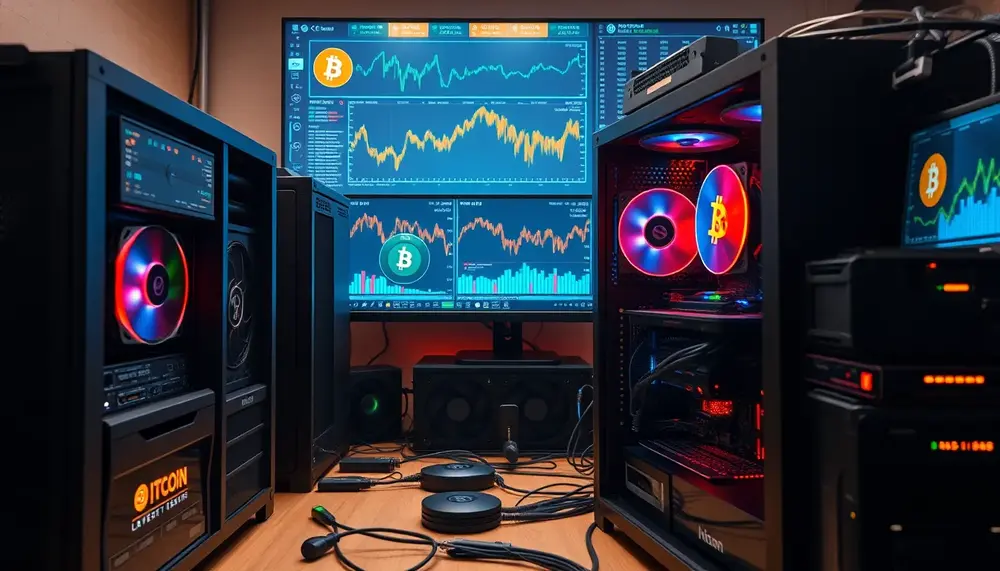
Crypto mining is the process of using powerful computers to solve complex puzzles, validating transactions on a blockchain and ensuring security and decentralization; it involves competition among miners who are rewarded with new cryptocurrency coins for their efforts. This essential...

Crypto mining is the process of verifying and adding transactions to a blockchain, with miners receiving rewards for their computational efforts. The profitability of crypto mining has evolved over time due to changes in technology and market conditions, requiring miners...

Bitcoin mining, essential for the cryptocurrency's network integrity and security, is increasingly scrutinized for its substantial energy consumption that could threaten grid stability. As miners seek innovative solutions to integrate their growing operations with existing grids sustainably, they also explore...

Crypto miners must report and pay taxes on their mining rewards, treating them as income based on the fair market value at receipt. Detailed record-keeping of mining rewards, expenses, and sales is crucial for tax compliance and potential deductions. Understanding crypto...

Bitcoin mining is an energy-intensive process that has significant environmental implications due to its high energy consumption and contribution to greenhouse gas emissions. However, there are sustainable solutions in development, such as shifting to renewable energy sources and using more...

Crypto mining is the process of solving complex mathematical puzzles to validate transactions on a cryptocurrency network, with miners using specialized equipment like ASICs for efficiency and competing for rewards. The article covers the basics of crypto mining, its importance...

